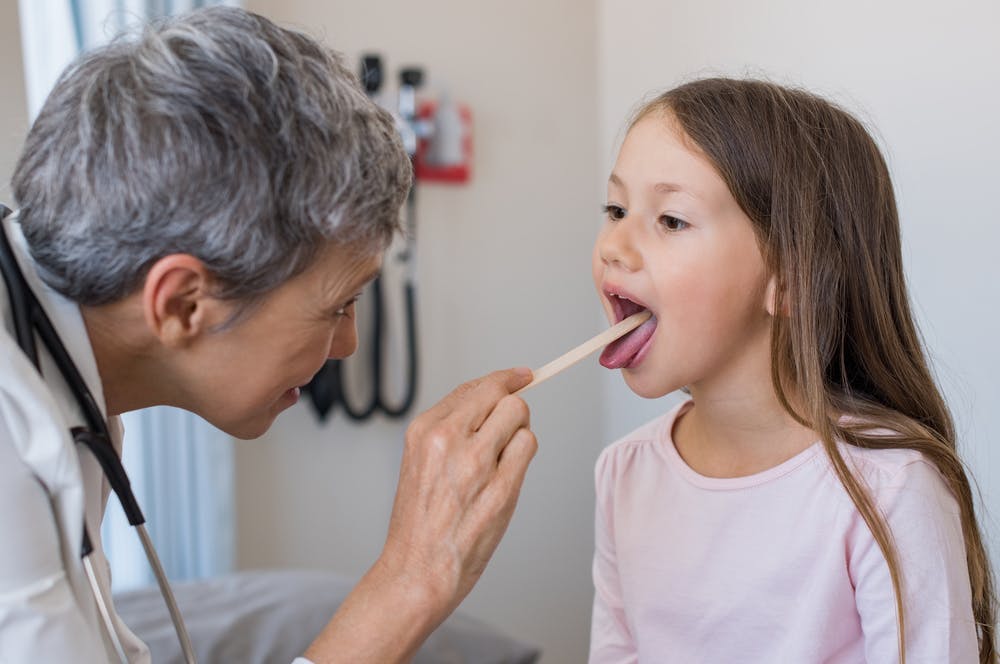Parents’ questions about COVID-19 answered
In general, what are the symptoms of COVID-19 in children, and are they different from the adult symptoms?
The symptoms of COVID-19 are similar in children and adults. The most common presenting symptoms would be fever, cough, and shortness of breath. The majority of children will present, however, with what seems like a cold.
If a parent is concerned about COVID-19 symptoms in their child, what should they do?
If your child has a fever and cough, you should call their pediatrician or schedule a Virtual/Video Visit if available in your state. We currently offer video visits in Arkansas, California, Connecticut, Delaware, Springfield-Missouri, St. Louis-Missouri, New York, Oklahoma, Oregon, and Washington. We can evaluate adults and children over the age of 1 via video visits. For mild symptoms, your provider may advise fever reducers, saline spray, and increasing fluids, similar to the management of a common cold. From what we’ve learned about COVID-19 so far, it has been presenting mildly in the majority of children, however, it’s important to monitor symptoms and seek care right away if they worsen.
In both adults and children, when is it necessary to see a healthcare provider for COVID-19?
It is important to remember that 8 out of 10 people infected with COVID-19 will have mild symptoms that will improve on their own. If you or your child have developed symptoms or you have concerns about having been exposed to someone who has COVID-19, contact your primary care provider, or if available in your state, you may schedule a Virtual/Video Visit to speak with one of our urgent care providers for evaluation and further guidance. If you or your child are having trouble breathing, experiencing chest pain, or dehydration, please go to the nearest Emergency Room, or for any life-threatening emergency, call 911.
How are COVID-19 symptoms distinct from cold/flu symptoms?
COVID-19 can present in a similar way to other viral respiratory illnesses such as cold and flu. From what we have learned so far, fever, cough, and shortness of breath appear to be common in the more severe cases. Some people may also experience gastrointestinal symptoms such as nausea, vomiting, and diarrhea. Milder cases of COVID-19 have cold/flu-like symptoms such as low-grade fever, nasal congestion, and sore throat.
What are healthcare providers doing to prevent contracting the virus themselves and what do they suggest to parents?
Providers are practicing measures that we recommend normally during cold/flu season, but now are also taking extra precautions to protect against COVID-19, such as wearing masks and eye protection inside healthcare facilities and during patient care. Here are a few tips to keep your family healthy:
- Wash your hands frequently, especially before eating or caring for your children. Help your children wash their hands and teach them about proper washing techniques (suds for at least 20 seconds with warm).
- Wipe down hard surfaces that harbor germs such as doorknobs and refrigerator handles, keyboards, toys, and phones.
- Avoid touching your face and your children’s faces with your hands.
- The Centers for Disease Control (CDC) recommends wearing non-surgical masks or face coverings when you are going to be in areas that may involve proximity to others, such as going grocery shopping or to the drugstore.
- Any face covering must fully cover your nose and mouth. All children older than 2 years should wear a mask. If they are younger or you are unable to maintain a properly fitting mask on their face, they should not go out when it is difficult to maintain social distancing.
- Most importantly, continue to practice social distancing of at least six feet at all times to help slow the spread of COVID-19.
We're open 7 days a week to care for you and your family. Find your center and save a spot online or simply walk in.
Written by Sarah Thebarge, Physician Assistant


